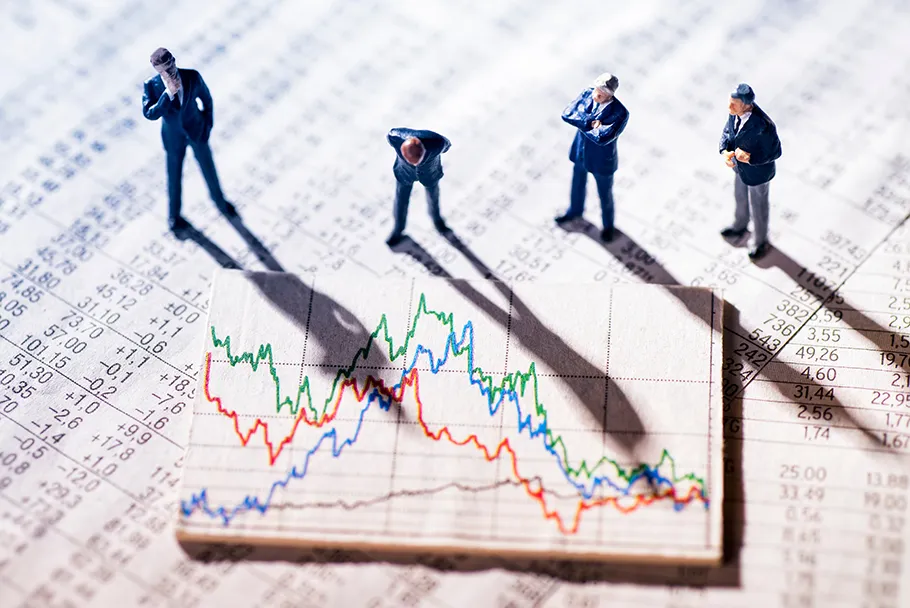Economic uncertainty can be daunting for investors. Market fluctuations, inflation, geopolitical tensions, and financial crises can create instability. However, certain sectors tend to be more resilient and can provide good investment opportunities even in volatile times. In this article, we will explore the best sectors to invest in during economic uncertainty and why they remain strong despite market downturns.

1. Healthcare Sector
The healthcare industry is a defensive sector, meaning it remains in demand regardless of economic conditions. People always need medical care, prescription drugs, and healthcare services. Companies involved in pharmaceuticals, biotechnology, medical devices, and healthcare providers tend to perform well during downturns.
Why Invest in Healthcare?
- Consistent demand for medical products and services
- Government funding and support
- Innovation in biotech and pharmaceuticals
2. Consumer Staples
Consumer staples include essential goods like food, beverages, household products, and personal care items. These are necessities that people continue buying even in a recession, making this sector a safe investment.
Why Invest in Consumer Staples?
- Steady demand regardless of economic conditions
- Strong brand loyalty
- Less volatility compared to other sectors
3. Utility Sector
Utilities, including electricity, water, and natural gas, are essential services. No matter how the economy performs, people and businesses need these services, making the utility sector one of the most stable investment options.
Why Invest in Utilities?
- Predictable revenue streams
- Regular dividend payouts
- Regulated industry with low competition
4. Technology Sector
Technology is an ever-growing sector that thrives on innovation. While some tech companies may suffer during downturns, those providing cloud computing, cybersecurity, and artificial intelligence (AI) solutions tend to perform well as businesses rely on technology to enhance efficiency.
Why Invest in Technology?
- Rapid digital transformation across industries
- Growth in cloud computing and cybersecurity
- High long-term return potential
5. Precious Metals (Gold & Silver)
During economic downturns, investors turn to safe-haven assets like gold and silver. These metals hold intrinsic value and act as a hedge against inflation and currency devaluation.
Why Invest in Precious Metals?
- Store of value during inflation and recessions
- Low correlation with stock markets
- Highly liquid assets
6. Real Estate (REITs & Rental Properties)
Real estate investments, especially rental properties and Real Estate Investment Trusts (REITs), can provide stable income during uncertain times. While property values may fluctuate, rental income remains relatively stable.
Why Invest in Real Estate?
- Passive income through rental earnings
- Long-term capital appreciation
- Diversification from stock market investments
7. Energy Sector (Renewable & Traditional)
Energy companies, especially those in oil, gas, and renewable energy, can offer stability depending on global energy demand. Renewable energy investments are gaining traction due to increasing sustainability efforts.
Why Invest in Energy?
- Rising global energy demand
- Transition to renewable energy sources
- Potential for government incentives and subsidies
8. Defense & Aerospace
The defense and aerospace sector remains strong during economic downturns due to government spending on military and security. Companies involved in defense contracts, cybersecurity, and aerospace technologies benefit from steady demand.
Why Invest in Defense & Aerospace?
- Government-backed contracts ensure stability
- Increased global focus on cybersecurity
- Long-term growth potential
9. Pharmaceuticals & Biotechnology
This sub-sector of healthcare is particularly strong during economic uncertainty. Innovations in medical treatments and global health crises often boost pharmaceutical and biotech stocks.
Why Invest in Pharmaceuticals & Biotechnology?
- Strong demand for medicines and vaccines
- Constant innovation in healthcare
- Regulatory support and funding
10. Dividend-Paying Stocks
Dividend stocks provide a consistent income stream even when stock prices fluctuate. Companies with a strong history of paying dividends tend to be more stable and less volatile.
Why Invest in Dividend Stocks?
- Regular income regardless of market conditions
- Potential for capital appreciation
- Lower risk compared to growth stocks
Conclusion
Investing during economic uncertainty can be challenging, but focusing on stable and essential sectors can help safeguard your portfolio. Healthcare, consumer staples, utilities, technology, and real estate remain some of the best investment options in volatile times. Diversification and long-term planning are key strategies for navigating economic downturns successfully.
Read More:https://wealthfitlife.com/the-50-30-20-rule-and-how-it-helps-in-wealth-building/
Frequently Asked Questions (FAQs)
1. What is the safest investment during economic uncertainty?
Investments in healthcare, consumer staples, and utilities are considered the safest as they provide essential services that remain in demand.
2. Should I invest in gold during economic downturns?
Yes, gold is a safe-haven asset that can protect against inflation and market volatility.
3. Are technology stocks risky during recessions?
While some tech stocks are volatile, companies in cloud computing, cybersecurity, and AI tend to perform well.
4. Why are dividend stocks good during uncertain times?
Dividend stocks provide consistent income and tend to be more stable than growth stocks.
5. Is real estate a good investment during a recession?
Yes, rental properties and REITs can generate stable income even in downturns.
6. How can I diversify my investment portfolio?
You can diversify by investing in different sectors such as healthcare, utilities, gold, and real estate to minimize risks.
7. What role do government policies play in investment stability?
Government policies, including stimulus packages and subsidies, can impact investment returns, particularly in sectors like healthcare, defense, and renewable energy.
8. Are cryptocurrencies a good investment during economic uncertainty?
Cryptocurrencies can be highly volatile, but some investors see them as a hedge against inflation.
9. What is the best way to invest in utilities?
Investing in utility stocks or ETFs that track utility companies is a good approach.
10. Should I avoid the stock market during economic uncertainty?
No, but it’s essential to focus on stable, dividend-paying stocks and defensive sectors to reduce risk.
By carefully choosing resilient sectors, investors can navigate economic uncertainty while maintaining portfolio growth and stability.
